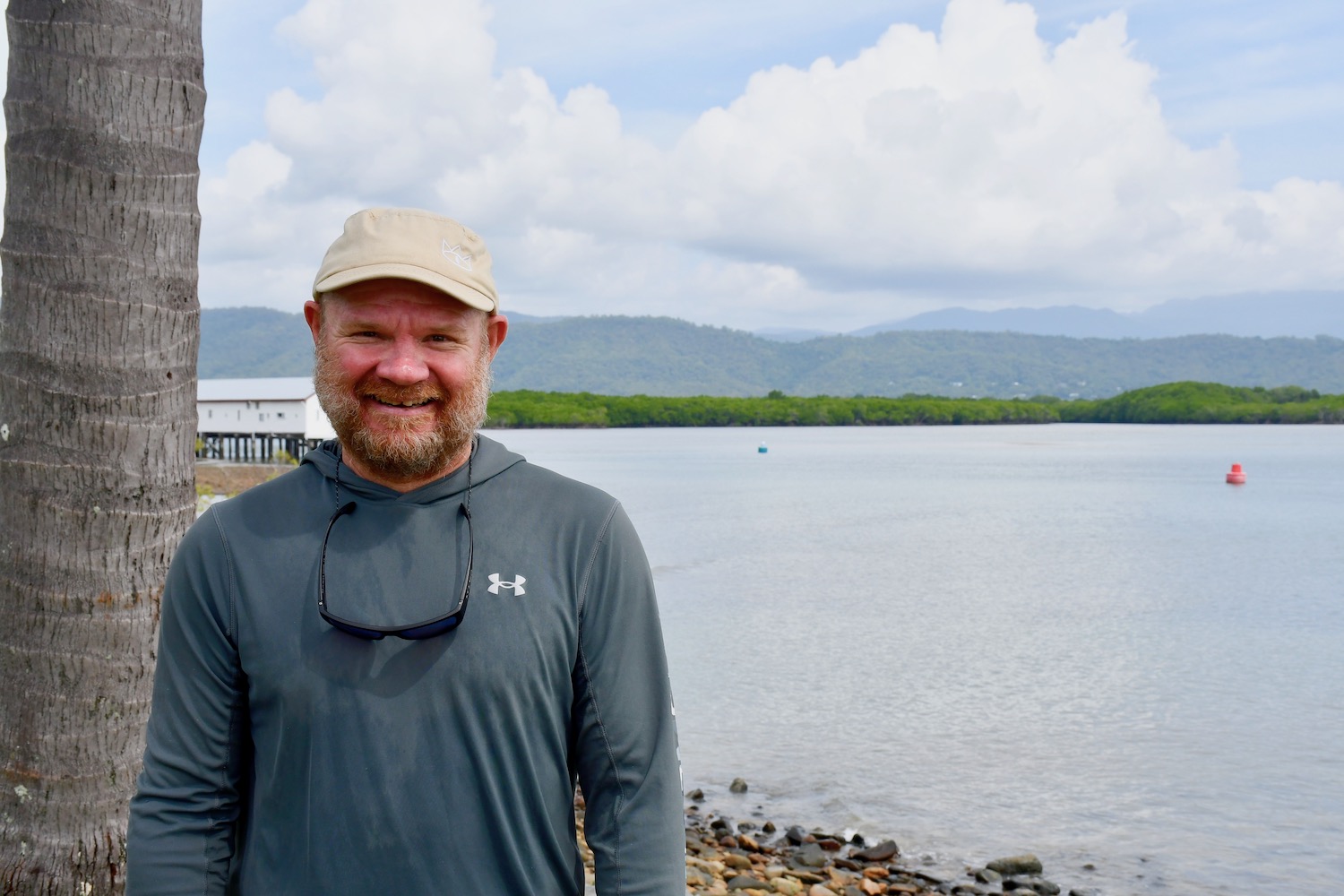
Plastic pyrolysis: the answer to the plastic problem
PLASTIC PIRATE PROJECT

As plastic pollution is no longer a problem we can ignore, Connor Clarke from Plastics Pirate is working hard on a solution to undo our damage.
“This is the decade we have to make a change.”
While sailing with his boat on the Coral Sea and the Great Barrier Reef, Port Douglas local, Connor Clarke was shocked to see the amount of plastic pollution and what it does to the ocean. When 2020 came around, he decided it was time to start doing something.
That’s when he learned about plastic pyrolysis; a technique that turns non recyclable plastic into oil. “In particular, usable fuels like diesel, unleaded and naphtha, which are building blocks for plastic production,” Mr Clarke explains.
“It achieves this by heating shredded plastic to five hundred degrees in an oxygen free, sealed environment.
“This vaporises the plastic, turning it into a gas which is then cooled in stages to produce fuel."
The team from Plastics Pirate are hoping to make a real change to the plastic pollution problem with this technology.
Mobile and scalable
According to Mr Clarke, pyrolysis isn’t a new technology. “It is actually how fossil fuels were made originally.
“The technology is new in that it is mobile and scalable. You can take the units to a site with the plastics and it will make usable fuel straight out of the machine.
“Of the seven types of plastic being largely discarded to pollute the Earth, the mobile pyrolysis plants can transform four types into environmentally-friendly oil and shred other widely-used plastics to be repurposed into recycled products.
“The process is environment friendly, cost efficient and almost no emissions come out of the plant itself. Also the fuel that you burn is up to 77% less emission than normal fossil fuel."
Lack of feedstock
“At the moment they use pyrolysis for plastic waste, for general waste and tyres in China, Asia and Eastern Europe.
“It hasn’t really taken off in Australia because of, surprisingly, a lack of feedstock.
“There is a very small market for recycled plastic in Australia. Most of the plastic waste in Australia is tied up in government legislation and goes to landfill.
“For example, there is not even a shredder between here and Brisbane. That’s quite an amazing thing as we have the Great Barrier Reef and the Daintree on our doorstep and we’re the custodians of it.
“That’s why the Plastics Pirate project is important to take care of the reef and to protect it from plastic pollution.”
Pilot
“Our pilot partners, Scarabtech, a South African company, recently started producing mobile and scalable units," Mr Clarke said.
“In September one of these units is going to arrive in Townsville or Cairns. We are now in discussions with the Far North Queensland council to conduct a three to six month pilot project to field test the plant.
“For the pilot we will be using locally sourced plastics from target consumers and plastics collected from the Great Barrier Reef.”
Closed-loop process
“The main thing we want to prove with this concept is the fact that we can make industry specific circular economies.
“The plants will be able to be manufactured anywhere in the world so that they can be affordable to everyone.
“Communities and businesses will then be able to process their own plastic and send the fuel to the petrol chemical companies and plastic manufacturers who can, in return, make plastic for their next supply.
“That way they are closing that loop by making a circular economy that’s viable and economical and works industry specific.
“The pilot will determine the relationship between what we put in and what we get out.”
Solution
Mr Clarke has been getting a lot of local support. “I can see that the awareness is increasing and everyone is very supportive.
“The plastic waste problem is a dire situation which I fully believe we have the solution for. If I didn’t have a solution, I would be really despondent.
“We have no idea of the damage we’re causing and the impact that we make in the long term.
“This is the decade that we have to make a change, otherwise I don’t think there is a viable existence for us in the future.
“Plastic is an incredible material and there is nothing that substitutes it. For its purpose it’s fantastic. We just need to manage it properly and find ways in which we can reuse it.”
The Plastics Pirate project is still in the Research and Development phase. To get his project off the ground, Mr Clarke is on a treasure hunt for investors. Make a donation or go to plasticspirate.org to learn more about the project.
Thank you!
Newsport thanks its advertising partners for their support in the delivery of daily community news to the Douglas Shire. Public interest journalism is a fundamental part of every community.
Got a news tip? Let us know! Send your news tips or submit a letter to the editor here.
* Comments are the opinions of readers and do not represent the views of Newsport, its staff or affiliates. Reader comments on Newsport are moderated before publication to promote valuable, civil, and healthy community debate. Visit our comment guidelines if your comment has not been approved for publication.
